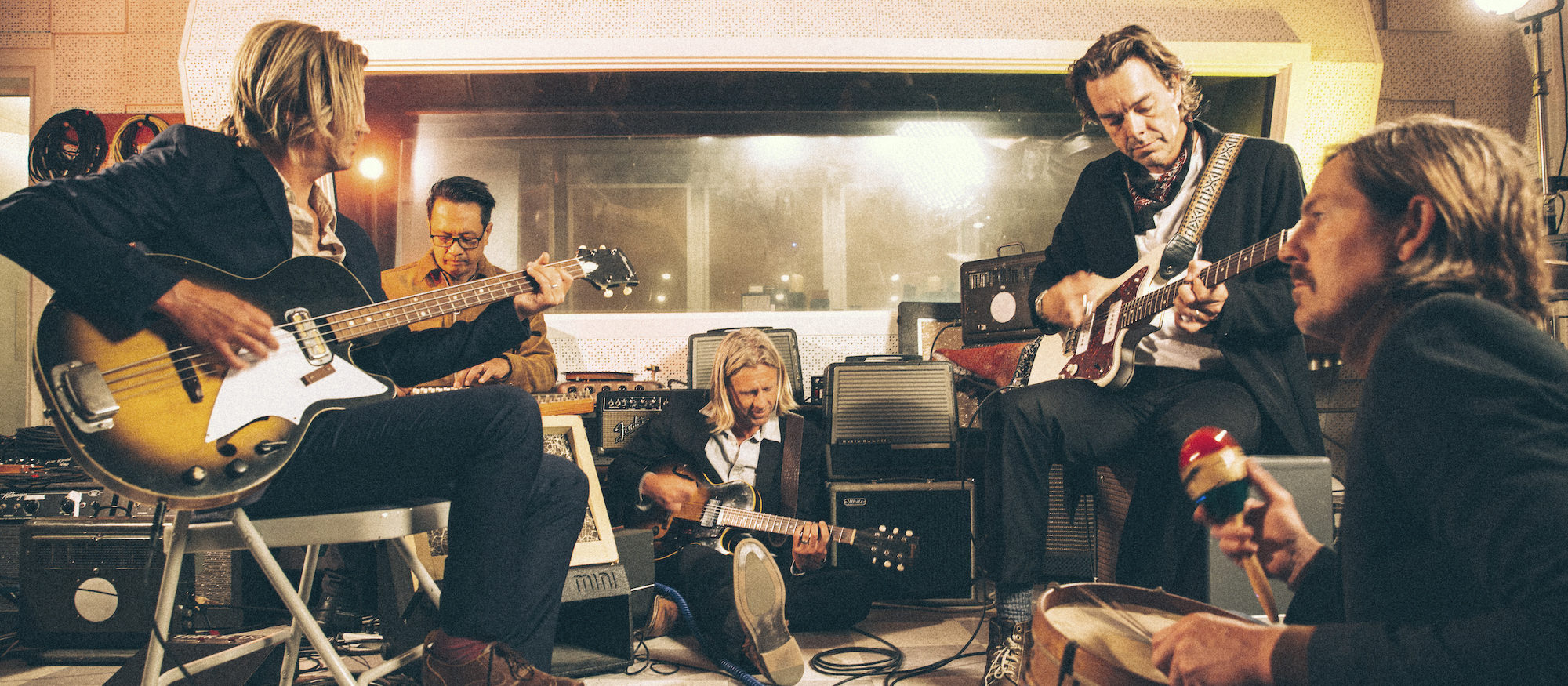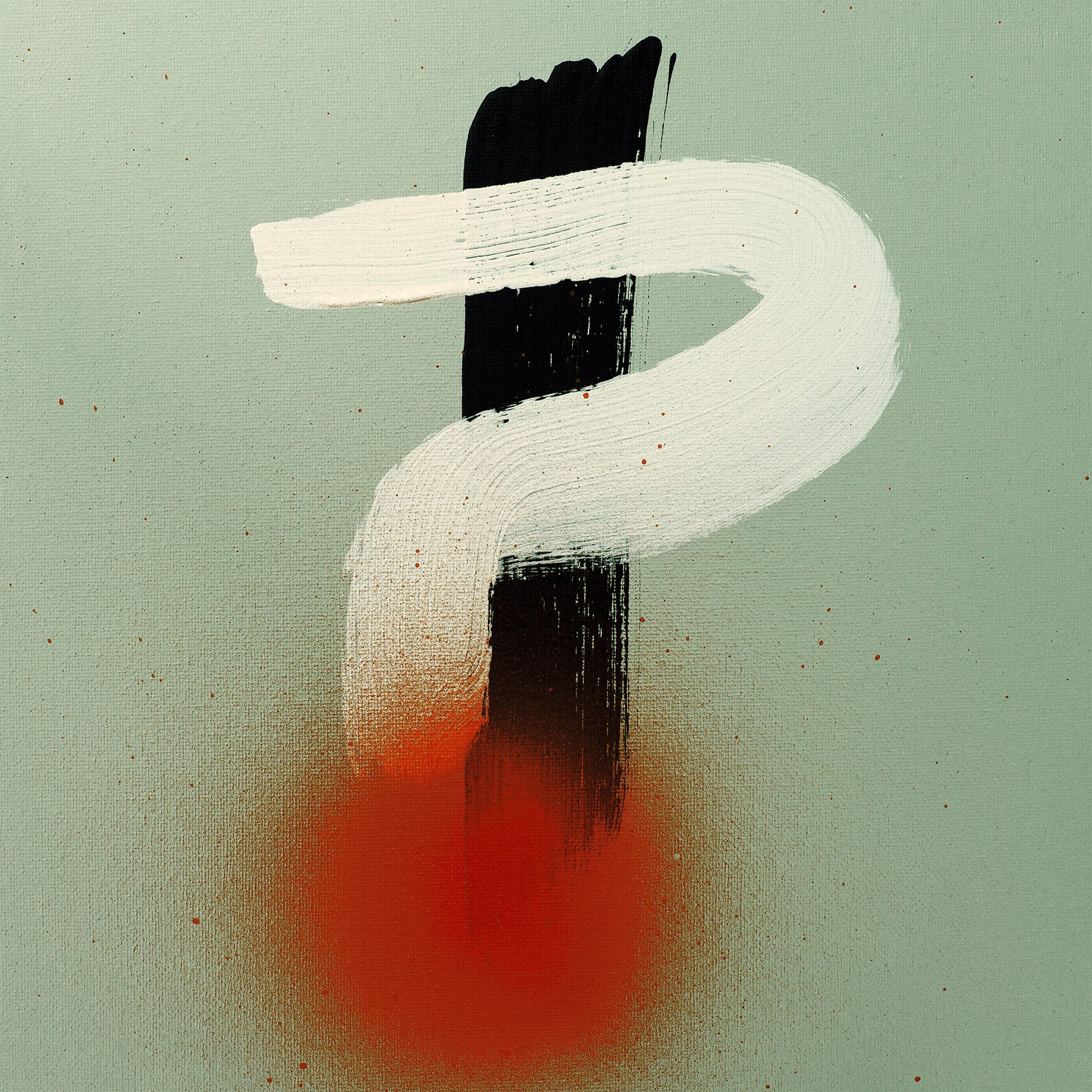

“Hope is a war that is yet to begin.”
I’m ashamed to admit it, but a small part of me was perversely pleased that Native Tongue was not commercially successful. While that album proved that Switchfoot could blend into the mainstream, doing so meant sanding away many of the distinct edges that made the band stand out in the first place. I don’t want Switchfoot to be just another face in the hashtag crowd.
Though I obviously want my favorite musicians to eat, from a purely artistic standpoint, the album’s failure to catch on can only be seen as a blessing in hindsight. It forced the band to take stock of themselves as they approached the quarter century mark, to really consider what they wished to accomplish with their music going forward. As the individual band members sat at home during quarantine, occasionally coordinating special live streams to try to capture the energy of their live shows, they evidently did some soul searching and hard drive scouring and have returned with Interrobang, their best album in over a decade.
And the past starts talking with its younger souls,
‘Bout the dreams that we started off with before we both let go.
As a fan that felt jaded after the trend-grabbing antics of Native Tongue, it took only two and a half tracks to convince me that the band had turned over a new leaf; to win me back. After a few minutes of muted acoustic strums, pulsing strings, and brief bursts of pounding drums and fuzzy electric guitar, ‘Fluorescent’ settles into a spaced out bridge that finds Jon Foreman’s voice mingling with a vocoder version of itself. Lyrically, the song is a drawn out metaphor equating moths’ attraction to light with romantic feelings, and the bridge begins with Foreman (the moth) singing about being led on by a “pseudo sun.” It concludes with two unexpected flourishes. First, Foreman’s soft vocoder voice merges with his natural one into a full-throated growl as he sings, “and my wings can’t last this long!” He draws the final syllable out a few beats longer than is called for, extending himself further each time. Then, the whole band all but drops out as the singer comes down to a near-whisper, his voice soft and quavery as he runs through the pre-chorus before a final full-band chorus. It’s only a brief flash of inspiration, but it exemplifies the creative risk-taking and confident tinkering that marks the band’s most beloved output and is on full display throughout Interrobang.
Stillborn from the bitter seed,
The next postmodern history, yeah.
A brokedown symphony,
It’s all we’ve ever known.
Indeed, on the grounds of lyrics, song construction, and sonic texture, Interrobang is the band’s most entrancing album since the aughts. Moody and full of lament, the songs paint a bleak portrait of a modern age overrun by insidious technology that divides humanity. The slow buildup of opener ‘Beloved’ includes the lines, “I’m staring and despairing on the screen, turning everything that’s real into a meme. But the feeds that I read don’t feed me what I need.” ‘Lost ‘Cause’ asks, “Is there no way back to a broken past? Just a broken future?” ‘If I Were You’ directly references “Twitter as our liturgy” and refers to “outrage as a habitat.” In characteristic fashion, Foreman questions his own contributions to the problem even as he sprinkles his mournful lyrics with glimmers of hope for reconciliation, finding beauty in the maddening paradoxes of life. All of the tensions of romance and faith and politics and grief are cathartically released on album closer ‘Electricity’, a throwback jam that pleads for human connection, a reminder that even in the midst of our fallen world, life is worth cherishing.
Am I the pollution? Am I the foregone conclusion?
These topical concerns are explored with a lingual dexterity sorely lacking on the last album (even if Foreman saved his most openly Christian material for his solo album, Departures), but Interrobang truly sets itself apart in the sonic realm. The entire album is a masterclass in musical tension. It shifts and misdirects and simmers, only occasionally indulging in breakdowns like the bridge on ‘Fluorescent’ or the The Age of Adz–esque synth outro on ‘Wolves’. Instead, it favors expressive grace notes—the distorted mumbling and faint piano on ‘The Bones of Us’, the unnerving wall of sound on ‘I Need You (To Be Wrong)’, the gentle buzz of a sitar and reversed instrumentation on ‘Backwards in Time’. The most poignant examples come from the non-rockers, but even on the harder tracks the band includes inspired little deviations like Foreman’s voice twisting into nothingness as he sings the words “it’s only de-evolution” on ‘Splinter’, the subtle electronic percussion in the early portion of the bridge of ‘The Hard Way’, and the exquisite Beach Boys/Beatles-ish harmonies liberally spread across the entire album. (I’m pretty sure the wee-oohs on ‘Electricity’ are made by a theremin or the like, not a human voice, though a cursory search does not credit anyone for it.) Little flourishes like these are hidden in the mix all over Interrobang, each of them further evidence of the band’s deeply symbiotic songcrafting process.1 And where any of these touches could have turned garish via overemphasis, the arrangements maintain dueling notions of instability and masterful control, with a sublimely distorted guitar or a snatch of harmony occurring maybe only a single time before receding. While we can hope that Interrobang is not a one-off with producer Tony Berg, it is sadly the last release featuring longtime lead guitarist Drew Shirley, who departed the band this spring.
You come ’round like a pirate ship, you’re just business.
You gotta fish for a lower lip, you’re just business.
You’re the parentless nightmare kid, you’re just business.
You don’t answer for any of this, you’re just business.
Where Native Tongue found the band blatantly imitating popular acts, Interrobang shows a mature integration of influence and inspiration—a much healthier and more organic creative process that, unsurprisingly, results in a much better album. Of course, it’s also the case that the touchstones for Interrobang are generally better than those of Native Tongue, as the band has seemingly swapped OneRepublic and Imagine Dragons for the likes of Radiohead, the Flaming Lips, the War on Drugs, and Coldplay circa Viva la Vida. Even so, Interrobang has a much looser, mildly experimental texture to it, akin to the band’s own Eastern Hymns for Western Shores EP or Fiction Family’s self-titled debut.
Few artists are capable of reconstitution, of producing exciting second or third acts. For every Bob Dylan, Michael Gira, and Tom Waits, there are scores of musicians who simply can’t extend beyond the template of their original success. For about ten years it has seemed like Foreman and his bandmates were destined for the ranks of has-beens—still a good band and worthy of fan allegiance, perhaps, but not an evolving act worthy of continued study. Despite likening himself to a dinosaur on Interrobang, one can imagine the first twenty-five years as an exemplary first act, the second now eagerly anticipated.
Favorite Tracks: Fluorescent; The Bones of Us; I Need You (To Be Wrong); Wolves; Backwards in Time.
1. The album’s sonic cohesion becomes much more impressive when you realize that it draws from songs recorded up to fifteen years ago. Read Jon Anderson’s interview with Jon Foreman for some behind-the-scenes details and some really thoughtful analysis on songwriting and success.
Sources:
Moayeri, Lili. “Switchfoot Calling Tony Berg”. Mix Online. 4 November 2021.